Search Results
Showing results 1 to 20 of 27
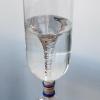
Vortex
Source Institutions
In this activity, learners create a tornado in a bottle to observe a spiraling, funnel-shaped vortex. A simple connector device allows water to drain from a 2-liter bottle into a second bottle.
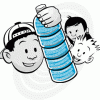
Go With the Flow
Source Institutions
In this activity, learners will observe laminar and turbulent flow of water using only a plastic bottle, liquid hand soap, food coloring and water.
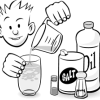
Make a Salt Volcano (Lava Lite)
Source Institutions
This activity about density provides instructions for making a miniature "lava lite" with just salt, oil, water, and food coloring.
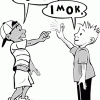
I M O K. U R O K.: You Can Make Sentences Without Words!
Source Institutions
Can you read the sentence "I C U"? Not really - but if you say each letter aloud, you'll say the simple sentence, "I see you." What if you change the "C" into a picture of an eye?
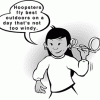
Hoopster: An Airplane Made from Paper Hoops
Source Institutions
This activity provides instructions for making an aircraft that can really fly using a straw and paper hoops!
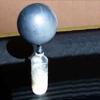
Yeast-Air Balloons
Source Institutions
In this activity, learners make a yeast-air balloon to get a better idea of what yeast can do. Learners discover that the purpose of leaveners like yeast is to produce the gas that makes bread rise.
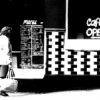
Cafe Wall Illusion
Source Institutions
In this fun and interactive online exhibit, the straight lines of a tile wall appear to curve. The learner moves the rows of tiles and changes the color of the grout to achieve the intriguing effect.
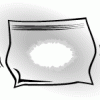
Bubble Bomb
Source Institutions
Learn about chemical reactions by making a Bubble Bomb, a plastic bag you can pop with the power of fizz.
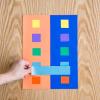
Color Contrast
Source Institutions
Do you have a hard time matching paint swatches with your furniture? When you consider human perception, color is context dependent.

Michelle O (formerly Vanna)
Source Institutions
We don't normally view people upside down and so our brains aren't accustomed to it.
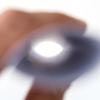
Circles or Ovals?
Source Institutions
This science activity demonstrates the dominant eye phenomena. What does your brain do when it sees two images that conflict?

Stereo Sound
Source Institutions
We listen to stereo music systems, tv's, and radios because it simulates being where the sound originates.
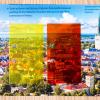
Color Table: Color your perception
Source Institutions
Look at pictures through different color filters and you'll see them in a new way. People have used color filters in beautiful photography or sending secret messages.
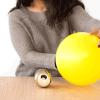
Remote Control Roller: Experiment with Static Electricity
Source Institutions
This activity is an investigation of static electricity. What happens when you get "static cling?" Basically, you pile up electrons on one thing, which attracts the protons in something else.
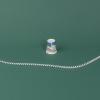
Anti-Sound Spring
Source Institutions
What happens when two wave pulses meet in the middle? Send waves down a spring to watch them travel and interact.
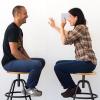
Cheshire Cat
Source Institutions
Can you deceive your eyes? When your eyes work normally, you see a nice 3 dimensional picture, but what happens when each eye sees something different?
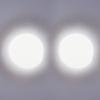
Overlapping Spots: Make a bright spot brighter
Source Institutions
This perception trick focuses on conflicting information to the brain...instead of trying to see two images, you're trying to get a bright spot by overlapping the image you see through two tubes.
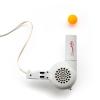
Balancing Ball: Suspend a ball in a stream of air
Source Institutions
Balance a ball in the air with a hair dryer! This Exploratorium produced activity shows learners concepts like lift and air streams. You can try many different angles, speeds, and ball types.
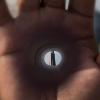
Hole in Your Hand
Source Institutions
Create an illusion where it appears that your hand has a hole in it. You'll see the results from when one eye gets conflicting information.
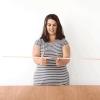
Center of Gravity
Source Institutions
A simple, yet fun activity that lets learners find the center of balance of a ruler (or any long thin object). Developed by the Exploratorium and no assembly needed.
